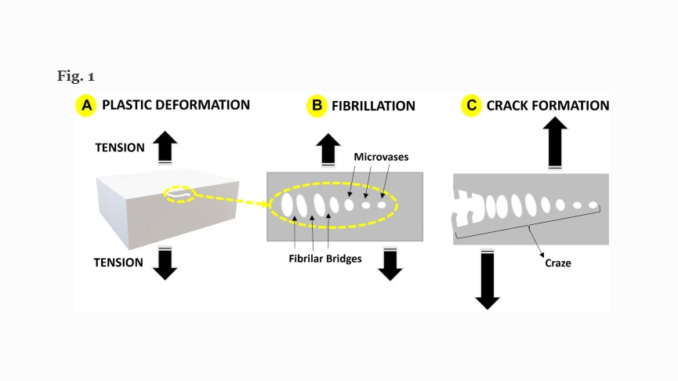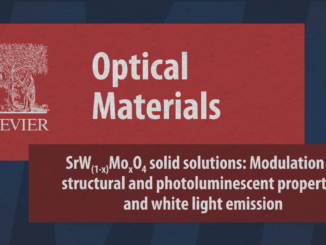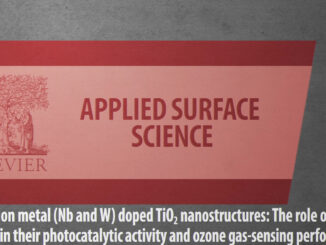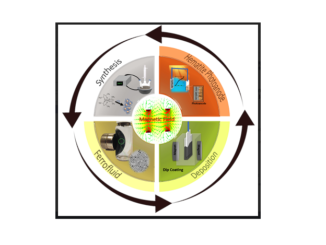
Formation of craze-like pattern in polypropylene UV-induced surface cracking
Abstract: Polypropylene (PP) samples were exposed to accelerated aging with UV-C light and showed a morphology inside the crackings like that of thermoplastic polymers under stress, known as craze. Herein we used the well-established photodegradation of polypropylene to build the relationship between the phenomenon of fibrillation inside the crackings and the microvoid formation during the evolution of the craze process. The basis of our proposition is the similarity of the processes but the stress source: whereas an external tensile stress load drives the craze, in photodegradation the stress comes from the changes caused by the crystallization, which reduces volume, creating tensions and forming cracks. We followed the polypropylene photodegradation using Scanning Electron Microscopy (SEM), tensile tests, Dynamic Mechanical Thermal Analysis (DMTA), Fourier Transform Infrared Spectroscopy (FTIR), and X-ray Diffractometry (XRD) to prove the correlation between the cracking evolution and the craze mechanism. From this similarity, we paved the way to applying the current knowledge about the craze phenomenon to understand better the cracking evolution on polypropylene surfaces.
Author(s): De Freitas, A. D. S. M.; Rodrigues, J. S.; Botaro, V. R.; Lemes, A. P.; Cruz, S. A.; Waldman, W. R.
Journal of Polymer Research
Published: 12 November 2022
DOI: https://doi.org/10.1007/s10965-022-03357-z
CDMF
The CDMF, hosted at the Federal University of São Carlos (UFSCar), is one of the Research, Innovation and Dissemination Centers (RIDC) supported by the São Paulo State Research Support Foundation (Fapesp), and also receives investment from the National Council Scientific and Technological Development (CNPq), from the National Institute of Science and Technology of Materials in Nanotechnology (INCTMN).




